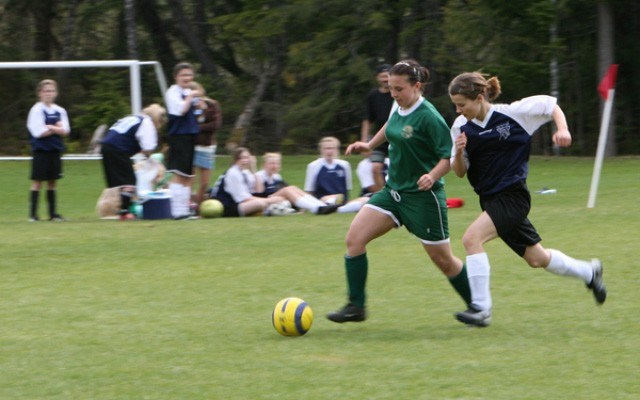Whistler council has its work cut out for it in settling on a location for a new proposed artificial turf soccer field.
A report at the March 7 council meeting outlining the pros and cons of six locations lasted the better part of an hour, and the subsequent discussion lasted another 35 minutes.
New to the equation is field space at Bayly Park, which if chosen could bring the cost of the project down to the $2.73 million range.
The space had previously been excluded as it is located over the closed municipal landfill, and there were concerns over what the landfill membrane's settlement rate might mean for a playing field placed over top.
But the municipality's consultant has declared the site a feasible option, bringing it back into play.
In a phone call before the meeting, Whistler Youth Soccer Club president PJ O'Heany said that while each site comes with different factors to consider (like longevity, travel distance, solar aspects and snow cover), the club can work with any of the locations put forward.
"We think (Bayly Park) is a fantastic option... a lot of it's been done, so that's why it's the cheapest option — the infill, the infrastructure, a lot of it is there," he said.
The full report will be posted to www.whistler.ca/culture-recreation/parks-trails/parks/artificial-turf-field-project.
After the presentation, Councillor Sue Maxwell read from a lengthy list of concerns she has with the project, which included the costs involved with planning, construction, maintenance and eventually replacement.
Maxwell noted that money for the project is coming from the municipality's general reserves, which she said are forecasted to fall from a high of about $80 million in 2015 to a low of $45 million in 2018 — "the lowest since 2009 when taxes had to be raised," she said.
"Any money that we spend on this can't be spent on higher community priorities or saved to protect us from the increased risk that might be happening out there due to changes in governments around the world, or climate change," she added.
"I can't see that this is a priority, or addressing an identified need in the community, and feel that this project should not proceed."
Maxwell recommended the project be put to a referendum with the next election in the fall of 2018.
Coun. Andree Janyk noted that there is already community representation on council's various committees, and detailed the extensive, five-year process that resulted in the report before council, the effect of overuse on Whistler's current fields and the importance of continuing to grow sport in Whistler.
"This is a growing community... not only in children but in young adults that come here and want to play a great game, whether it's Frisbee, whether it's tag football or whether it's soccer," she said.
Janyk also repeated a comment from a member of the Recreation and Leisure Advisory Committee.
"If one child got killed traveling to Squamish because they could have been using a field here in Whistler, he would feel horrible," she said.
Coun. Jack Crompton called it "far and away the most vetted project" in his time on council, "and we've learned a lot," he said.
"The fields are 30 years old and clearly do not stand up to the use they are getting, so for me it comes down to value for money: Fixing the grass Myrtle Philip fields and adding lights would cost the RMOW close to $2 million, by my math, and allow for 600 hours of use.
"An artificial turf pitch at Bayly Park for $2.7 million dollars allowing for 2,500 hours appears far better value to me."
A decision will come at an upcoming council meeting.
The full discussion will be available online at www.whistler.ca/municipal-gov/council/watch-council-meetings.




